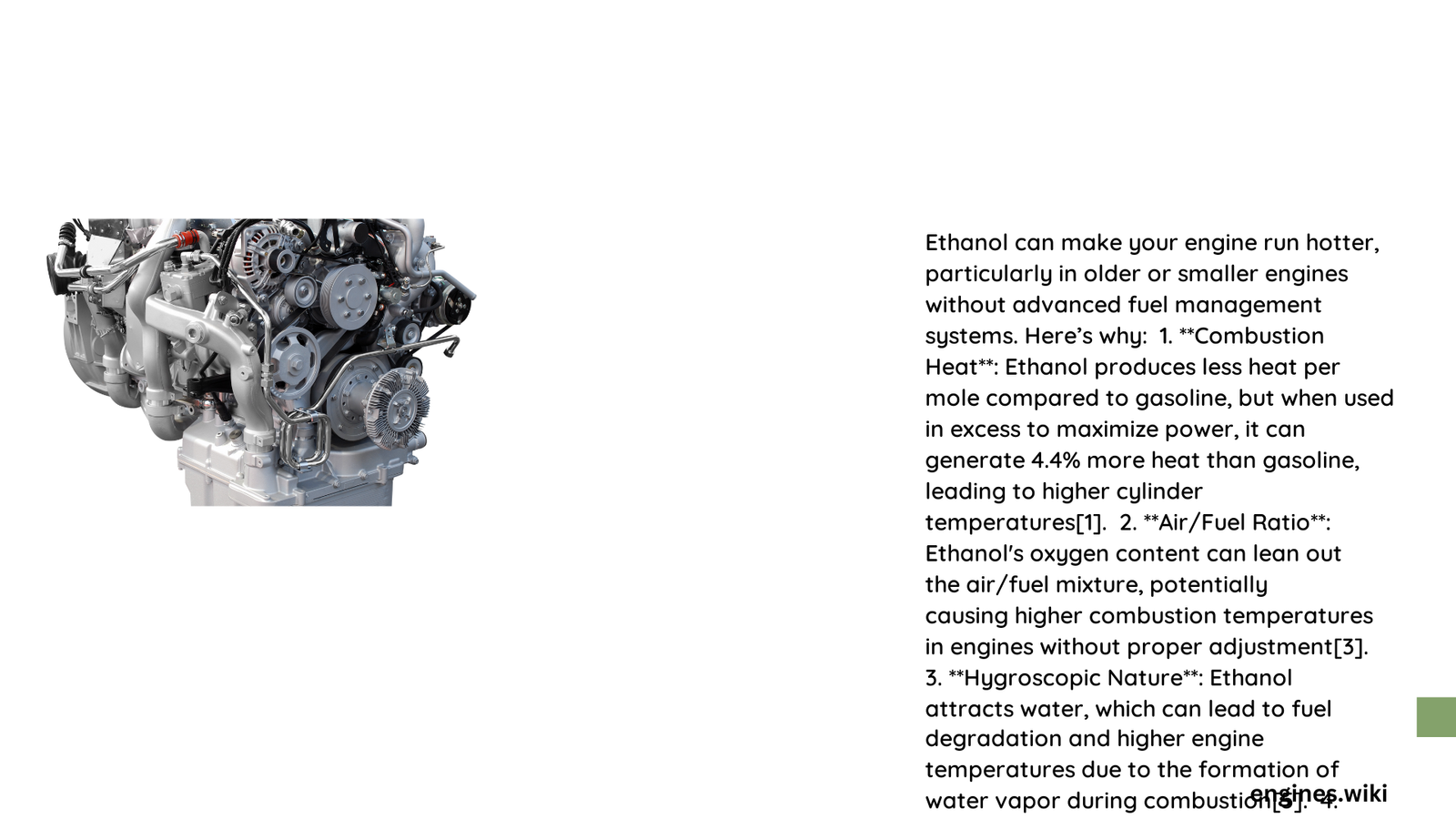Ethanol’s complex interaction with engine thermal dynamics reveals a nuanced relationship between fuel composition and temperature management. Vehicle owners and automotive enthusiasts frequently question whether ethanol increases engine operating temperatures. Research indicates that ethanol blends can potentially elevate engine temperatures by 30-40°F, depending on specific engine configurations, fuel mixtures, and technological adaptations. Understanding these thermal characteristics requires a comprehensive examination of combustion properties, fuel chemistry, and mechanical engineering principles.
What Causes Ethanol to Affect Engine Temperature?
Ethanol’s unique molecular structure and combustion characteristics significantly influence engine thermal behavior. Unlike traditional gasoline, ethanol introduces distinct thermodynamic properties that impact overall engine performance.
How Does Ethanol Combustion Differ from Gasoline?
| Fuel Property | Ethanol | Gasoline | Comparative Difference |
|---|---|---|---|
| Flame Temperature | Cooler | Hotter | 40°C Lower for Ethanol |
| Heat of Combustion | 1,368 KJ/mole | 5,460 KJ/mole | Significantly Lower |
| BTU Content | 77,000 BTUs/gallon | 114,000 BTUs/gallon | 3-40% Reduction |
Key Combustion Characteristics
- Oxygen Content: Ethanol contains approximately 35% oxygen by weight
- Higher Octane Rating: Enables advanced engine timing and compression
- Lower Energy Density: Requires more fuel volume for equivalent energy output
Why Can Ethanol Increase Engine Temperature?
Several critical factors contribute to potential temperature elevation:
- Lean Fuel Mixture
- Additional oxygen in ethanol creates a leaner combustion environment
- Potential for increased thermal stress on engine components
-
Requires precise air-fuel ratio management
-
Thermal Conductivity
- Ethanol’s molecular structure influences heat transfer mechanisms
- Different vaporization characteristics compared to gasoline
- Potential for localized temperature variations
What Mitigation Strategies Exist?
Vehicle manufacturers and engineers have developed multiple approaches to manage ethanol-related thermal challenges:
- Advanced engine control systems
- Enhanced cooling infrastructure
- Specialized materials resistant to thermal stress
- Adaptive fuel injection technologies
Technical Performance Considerations

Ethanol’s impact extends beyond simple temperature measurements:
- Power Output: Potential 5% horsepower increase
- Compression Ratio: Allows higher performance configurations
- Cooling Efficiency: High latent heat of vaporization provides some thermal regulation
Recommended Practices for Ethanol Users
- Regular cooling system maintenance
- Periodic thermal performance assessments
- Use manufacturer-recommended ethanol blends
- Monitor engine temperature indicators
Expert Insights
Automotive engineers emphasize that modern engines are increasingly designed to accommodate ethanol blends. Technological advancements continue to minimize potential thermal management challenges.
Conclusion
While ethanol can potentially increase engine temperatures, the overall impact depends on multiple interconnected factors. Proper vehicle maintenance, understanding fuel characteristics, and leveraging advanced engineering solutions can effectively mitigate thermal concerns.
